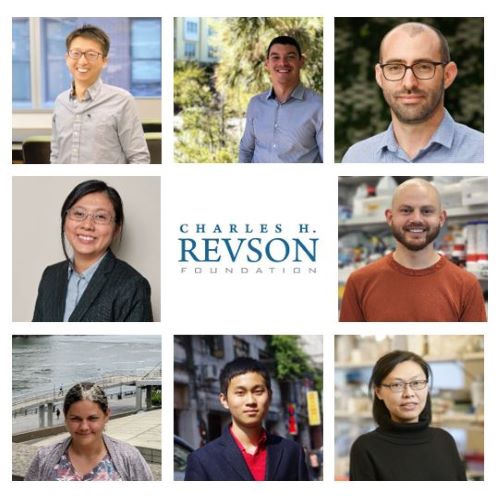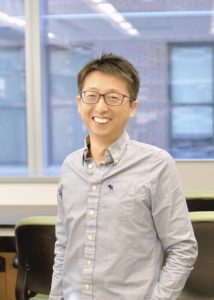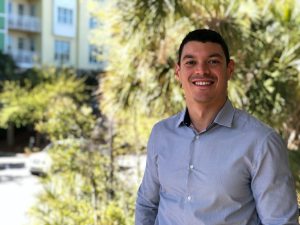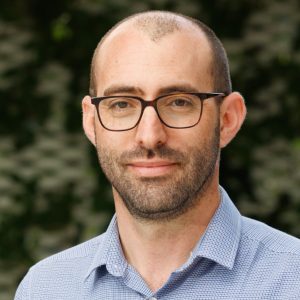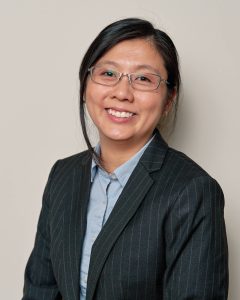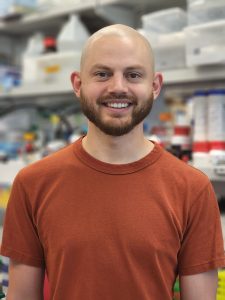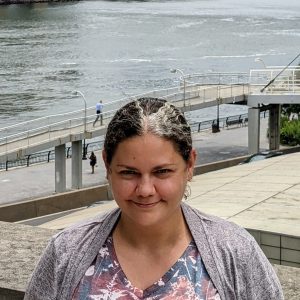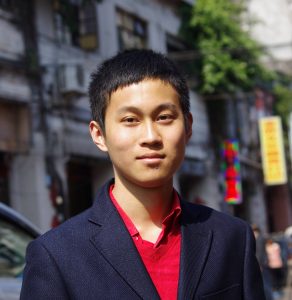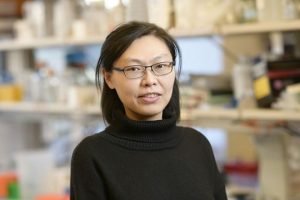Please welcome our Revson Fellowship class of 2021-2022!
Ying-Han Chen– New York University Grossman School of Medicine
Ying-Han studied cell biology and virology at Rutgers University. During his PhD, he worked in the laboratory of Dr. Nihal Altan-Bonnet at National, Heart, Lung and Blood Institute on a new mechanism of enteroviral transmission via vesicles as populations of viral particles. After that, he joined Dr. Cadwell’s laboratory as a postdoctoral fellow.
“Why did you want to become a scientist and when did you know this was your path in life?”
Like the microbes in our body, the world is full of diversity, and science is the best way we have of understanding it. When I was in college, I became open-minded about the way life works to challenge my thinking. It led to a passion for life science. Now, as a scientist, I can follow my curiosity and explore new concepts and have the privilege of discovery and developing a deep understating of the mechanisms of our diverse life.
Ricardo Cruz-Acuna– Columbia University Medical Center
Ricardo Cruz-Acuña, PhD is a postdoctoral research fellow in Dr. Anil Rustgi’s lab at the Herbert Irving Comprehensive Cancer Center in Columbia University Irving Medical Center. He completed his PhD in Bioengineering at the Georgia Institute of Technology in 2018. His graduate research objective was to engineer synthetic hydrogel matrices that recapitulate native cellular developmental programs and have the potential to be used for cell delivery-based therapies. He is now interested in integrating aspects of biomaterial engineering, cell and molecular biology, and 3D organoid biology to (1) understand the contributions of the tumor microenvironment to metaplasia and tumorigenesis, and (2) identify mechanisms important for esophageal developmental patterning and organogenesis. His work will help elucidate how cancer progresses within a dynamically evolving ECM that modulates every behavioral facet of the tumor cells, and will reveal novel mechanisms that drive human esophageal development.
“Why did you want to become a scientist and when did you know this was your path in life?”
Since a very young age I had an immense curiosity and desire of making things work more efficiently. This curiosity, along with my passion for math and chemistry, is what urged me to become an engineer. However, it was not until I was pursuing my undergraduate engineering degree at the University of Puerto Rico that I learned that I wanted to pursue a career as a scientist. As an undergraduate student, I took advantage of various pipeline programs and summer research programs for underrepresented minorities. These opportunities were eye-opening experiences that exposed me to high-level interdisciplinary research programs that cemented my love for science and commitment to pursue an academic research career.
Tal Golan– Columbia University
I am interested in improving the experimental interface between artificial neural network models and cognitive neuroscience, using visual object recognition as a model system. If deep neural networks are our new psychological hypotheses, what should hypothesis testing look like? My postdoctoral research in the Kriegeskorte lab is focused on interrogating human behavioral and neuronal visual function by controversial stimuli, which are images optimized to produce conflicting responses in different deep neural network models.
“Why did you want to become a scientist and when did you know this was your path in life?”
As a young adult, I was fascinated by how our subjectivity and the wet gray organ inside our skull are related. It was clear to me that to make progress, we need to look into the brain rather than (just) philosophize about it. Hence I decided to study cognitive neuroscience. Early in my junior year, I found my way into a lab as an RA, conducting EEG experiments, analyzing data, and washing electroconductive gel off electrode caps. As my studies and research progressed, my interests evolved, and I became increasingly concerned with how we can explain intelligent behavior through simple computational principles. This question guides my current research, in which I attempt to harness the exciting developments in artificial intelligence to better understand how we humans operate.
I knew that being a scientist was my path in life soon after the first time I had collected and analyzed experimental data. I just loved the feeling of seeing something nobody else has seen before. I still love it.
Jessica Sook Yuin Ho– Icahn School of Medicine at Mount Sinai
Jessica Ho received her PhD at the Rockefeller University and subsequently did her initial postdoctoral training in the IMCB in A*STAR, Singapore. She is now currently a postdoctoral fellow in the Department of Microbiology at the Icahn School of Medicine at Mount Sinai in New York City. Her main research interests lie in understanding epigenetic mechanisms that underlie host-pathogen interactions during viral disease.
“Why did you want to become a scientist and when did you know this was your path in life?”
I have always been fascinated by the microbial world. To me, it was incredible that microorganisms that were too small to be seen by eye could impact our lives in such enormous ways. And I knew for sure this was the path for me after working as an undergraduate in the Ruby laboratory in UW-Madison. I had never fathomed how complex and intricate host-microbe interactions were until I saw the dynamics of co-existence between the commensal V. fischeri and their bobtail squid hosts. It was an immensely eye-opening experience for me. Thereafter, my graduate and post-graduate work on host-pathogen interactions for Influenza and SARS-CoV-2 further cemented my interests in further untangling the complexities of our relationship with the viruses that infect us.
Kailin Mesa– New York University Grossman School of Medicine
My work combines advanced live imaging techniques and diverse mouse genetic tools to investigate the mechanisms that regulate resident macrophage function as tissues decline with age. I received a B.S. in Bioengineering from the University of California, Berkeley. I then went on to receive a Ph.D. in Genetics from Yale University.
“Why did you want to become a scientist and when did you know this was your path in life?”
As early as fourth grade, I have been fascinated in understanding why humans age. Even before this, I read about superheroes who could quickly recover from injuries, which rendered some nearly immortal. This interest as a youth started a long line of inquiry about the relationship between regeneration and aging. Ultimately, this has led me into a career focused on very basic questions about how we maintain tissue homeostasis.
Yiska Weisblum– The Rockefeller University
Yiska Weisblum is a virologist studying the interactions between respiratory viruses and their host cells, by identifying and characterizing new cellular factors mediating viral infection. She received her B.Sc. in Life Sciences from Bar-Ilan University, and a PhD in Virology from the Hebrew University of Jerusalem.
“Why did you want to become a scientist and when did you know this was your path in life?”
When I was in high school, I majored in biology, because I wanted to understand how nature works. I have a cousin who was a microbiology professor, and she told me about her experiences as a scientist. Asking fundamental questions and designing experiments to answer them sounded like the most interesting and fulfilling profession one can have. So, I went to study life sciences in university thinking I will focus on cancer research, but from the first virology class, I was amazed and intrigued by how these tiny organisms manipulate their host cells. That is when I knew I want to study viruses and how they interact with their hosts. I am grateful for this unique opportunity to everyday do what is most interesting to me while also playing a part in the bigger goal of advancing science and human health.
Charles Xu– The Rockefeller University
Charles obtained his PhD in Developmental and Regenerative Biology from Harvard University. His PhD work in Professor Norbert Perrimon’s lab focused on studying tissue homeostasis in the Drosophila midgut. In the Fuchs’ lab, he will take advantage of the emerging single-cell RNA-seq data and the lentiviral delivery technique to explore the basic principles of tissue biology. He is specifically interested in both inter-organelle and tissue communication during the processes of stem cell differentiation and tumorigenesis.
“Why did you want to become a scientist and when did you know this was your path in life?”
I want to become a scientist because I am always curious and driven by the urge to satisfy my curiosity.
Back when I was a freshman in college, I studied for a business major. Despite obtaining top grades for classes, I was not happy and could not imagine myself dealing with routine jobs as an accountant or consultant one day in the future. I figured out it would be more interesting to study biological sciences, as there are so many open questions to explore. I became the first to transfer out of business school to work on sciences in recent decades in my college.
Community Service:
Last year my father was diagnosed with metastatic rectal cancer. Fortunately, we found an expert team in Shanghai and all treatment went really well. In the process of helping my father seek treatment, I felt the hardship of many cancer patients and their families from poorer regions such as ours. I would now volunteer my spare time on a daily basis in several social media groups for thousands of cancer patients and families in China. I help them interpret their immunostaining or DNA sequencing results, read CT or MRI scan images, guide them to a suitable team depending on their situation, and facilitate their communication with doctors.
Yulei Zhao– Memorial Sloan Kettering Cancer Center
Dr. Zhao’s research aims to tackle the resistance problem of cancer patients to clinical cancer drug treatments. Her current research is focusing on studying the mechanisms of resistance to a first-in-class KRAS mutant targeted inhibitors and find effective approaches to inhibit these resistances. Dr. Zhao received a B.S. in biomedical engineering and B.M. in basic medical sciences from Jilin University in China. Then she went on and received a PhD in Pathology and Molecular Medicine from Queen’s University in Canada.
“Why did you want to become a scientist and when did you know this was your path in life?”
When I was 9 years old, I got a series of children’s encyclopedia books as a birthday gift from my aunt. I was very fascinated by these books especially the category of medicine. However, majority of the answers to the questions that I was interested in were uncertain, which greatly triggered my curiosity and motivation to find the exact answers. This seed of being a scientist starts to grow in my mind since then. As I grow up, several of my families passed away due to no effective treatments to certain diseases, such as cancer. This drives me to study more about it and try to find ways to improve the efficacy of clinical treatments.

